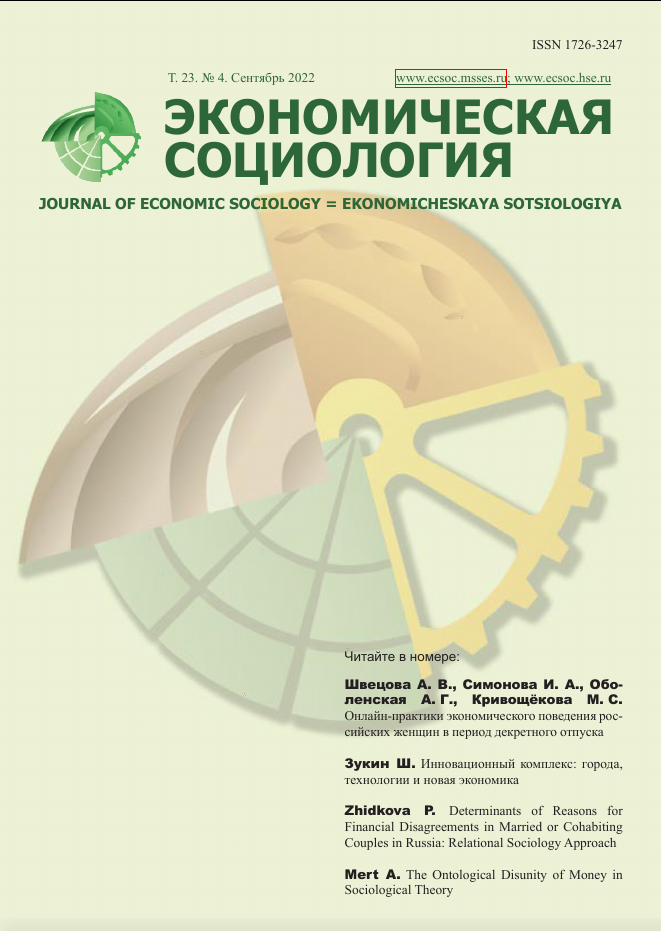Reason vs Feelling: Appearance of New Ecology of Choice in the Romantic Sphere of the Individual
Book Review: Illouz E. 2020. Pochemu lyubov’ ranit? Sotsiologicheskoe obyasnenie [Why Love Hurts? Sociological Explanation], Moscow; Berlin: Direct Media Publishing House. 400 p. (in Russian)
Abstract
The book review considers ideas and contemporary trends related to the sensual sphere of the individual and romantic relationships. In this book, Illouz writes about the consequences of modernism and the social conditioning of love, which is reflected in the romantic sphere. Her idea is that the institutions of modernism have led to the dominance of ideology of individualism, self-realization, political emancipation, independence, and free choice, and have changed personal ideas about what love should be and what romantic relationships can be. New forms of life have given rise to a “new ecology of choice” where choices are made based on culture and the sexualized discourse rather than personal preferences. In addition to using the works of well-known sociologists, Illouz’s argumentation is also based on empirical material. She analyses English novels of the XVIII-XIX centuries and modern novels about love and relationships, as well as self-help books and dating sites, soap operas, Internet blogs, and data coming from 70 interviews with men and women, aged 25 to 67, all of them with post-secondary degrees and living in three metropolitan areas in Europe, USA, and Israel. The sample included single people divided by three parameters: never married; married, but now divorced and currently single; and married people. Comparing these worlds, she tries to reconstruct the image of romantic relationships from the point of view of traditional culture and modernity. The purpose of the author is to show how the attitude of modern society to love, marriage, “love suffering”, and the relationship in general, have changed. Illouz problematizes the idea of marriage markets by Gary Becker, and writes about the crisis of family relations and the changing nature of marital obligations caused by the deinstitutionalization of marriage and the proliferation of individualized lifestyles.













